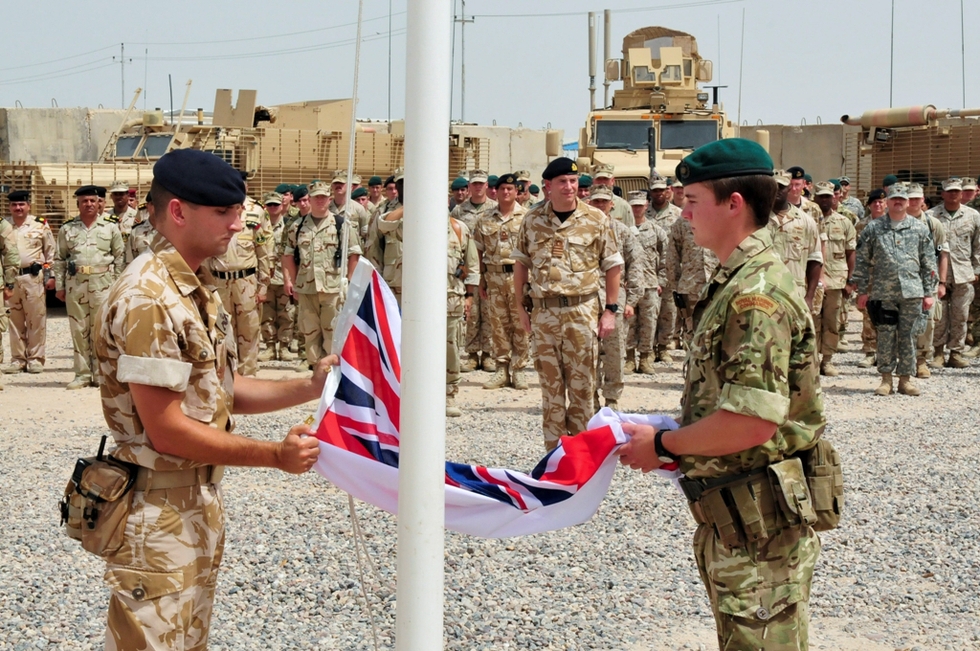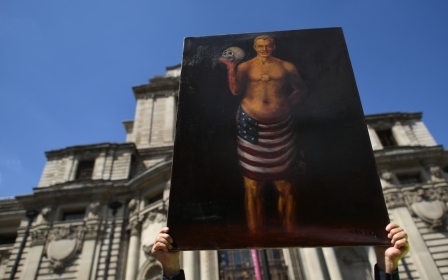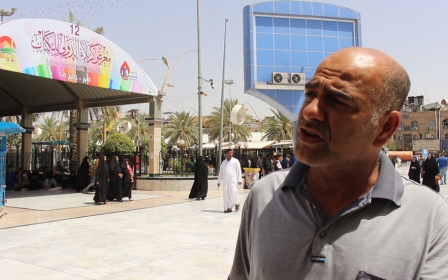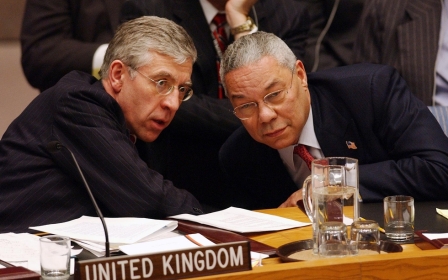MoD 'extremely sorry' for drowning of Iraqi teen during UK occupation

The UK Ministry of Defence said on Thursday it is "extremely sorry" for the death of an Iraqi teen who was forced into a canal and drowned during the British occupation of Basra in May 2003.
Ahmad Jabbar Kareem Ali, 15, drowned in the Shatt al-Basra canal after being forced into the water as part of the practice, known as "wetting", used by British soldiers against potential looters after the US-led invasion to remove Saddam Hussein.
A scathing report by a former High Court judge, George Newman, released on Thursday, said that it was "plain and certain" that failure by the soldiers to help the teen, who was in difficulty after being forced into the water with three other looters, was the cause of his death.
“His death ensued because he was forced by the soldiers to enter the canal, where, in the presence of the soldiers, he was seen to be in difficulty, and to go under the water.
“Notwithstanding the unlawful treatment involved in getting him into the water, his death could have been avoided because he could and should have been rescued after it became clear that he was floundering.”
Newman, who chairs the Iraq Fatality Investigations (IFI) judicial inquiry, added that the "extent of the looting was beyond the capability of the BF [British Forces] to prevent or reduce" and said that the advice given to British troops on the short-term detention of looters in Basra was "totally unrealistic and impractical having regard to the scale of the problem".
“There were swarms of them... they stole everything. On one occasion, I stopped an old man who was stealing a lamppost from a motorway. I’d never seen anything like it before."
According to evidence earlier released to the IFI, the use of wetting by British soldiers may have been widespread and led to the drowning of a number of Iraqis, including minors.
An unnamed former captain of the Irish Guards told the group: “We used a variety of methods to deal with looters, such as sitting them in the sun with a bottle of water, taking their shoes off, or throwing them into one of the waterways.
“Because No 2 Coy [Company] had a body of water, throwing looters into the river was not something I would have been surprised to see them doing.
“I remember driving past and seeing it. It was commonplace for them to do that, but not for No 1 Coy. But if we had also had water accessible, we would have done that all the time.”
In evidence given to IFI in May, a second British officer, who commanded troops accused of forcing civilians into the Shatt al-Basra waterway, said he was unaware of wetting as a practice.
However, the former captain said that he had discussed the incidents at the British Army's local HQ in Basra and there was "absolutely no way that our commanders could not have known about this".
In his statement, the former captain described how crowds of civilians came out on to the streets of Basra to watch the fighting between British and Iraqi troops.
“Suddenly, we were in control of a city that didn’t have any water or electricity and we didn’t know what to do,” he said.
Initial attempts to arrest looters were impractical due to their high numbers.
“There were swarms of them... they stole everything. On one occasion, I stopped an old man who was stealing a lamppost from a motorway. I’d never seen anything like it before."
The former officer added in his statement that troops then began pushing looters into rivers. “This practice was absolutely known and understood by every single person in Basra,” he said. “Unless you were an idiot, you could not have missed it and the talk of looters, and what we did with them, was on everyone’s lips all of the time.
“Everyone knew, even in our HQ – of that l have absolutely no doubt. I’m not saying it happened a lot, but it happened. If someone said they didn’t know about the practice and what was happening I would unequivocally call them a liar, as everyone knew. It may have been that some people such as those doing the catering didn’t know, but every single officer knew.”
New MEE newsletter: Jerusalem Dispatch
Sign up to get the latest insights and analysis on Israel-Palestine, alongside Turkey Unpacked and other MEE newsletters
Middle East Eye delivers independent and unrivalled coverage and analysis of the Middle East, North Africa and beyond. To learn more about republishing this content and the associated fees, please fill out this form. More about MEE can be found here.




